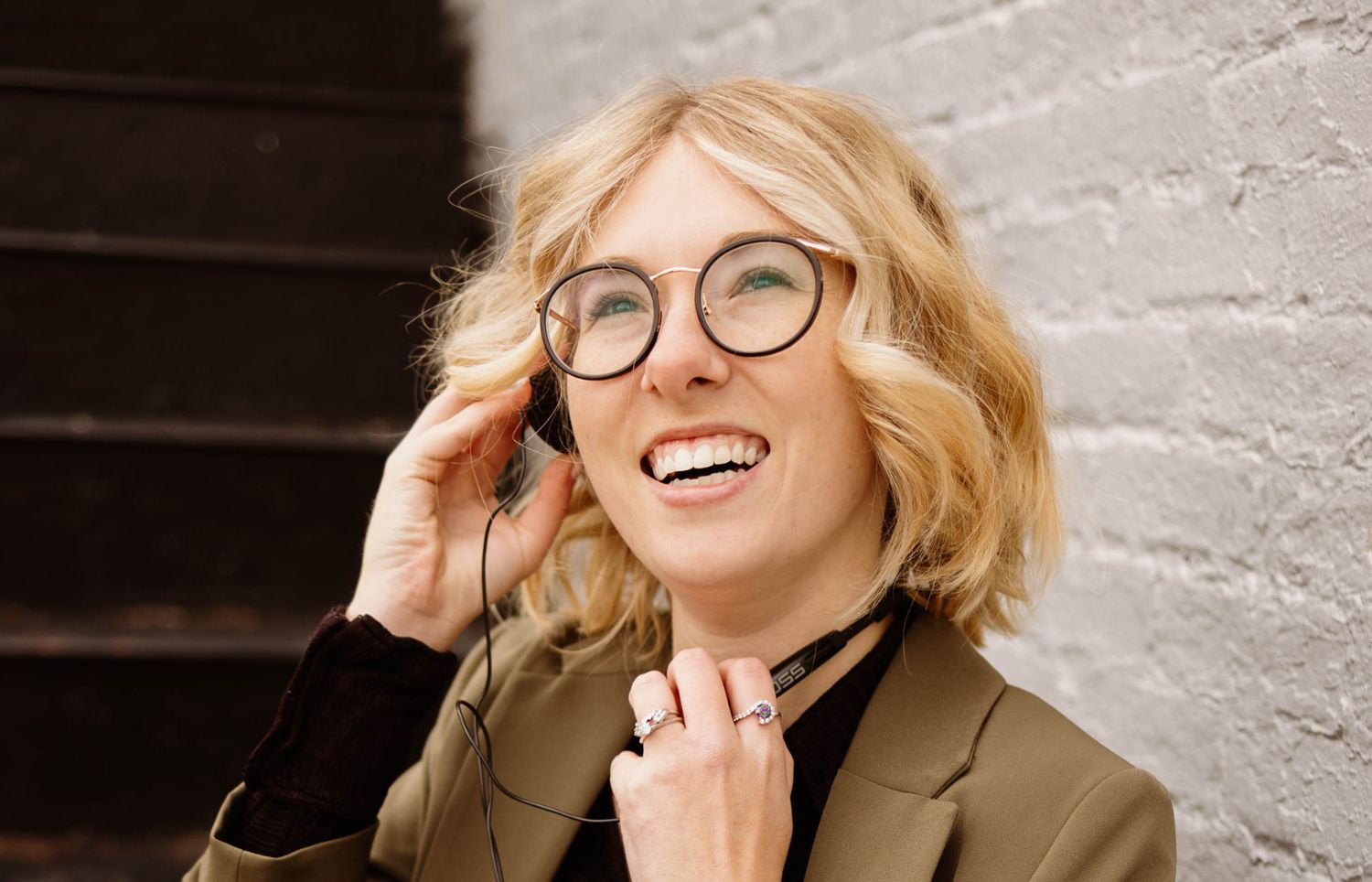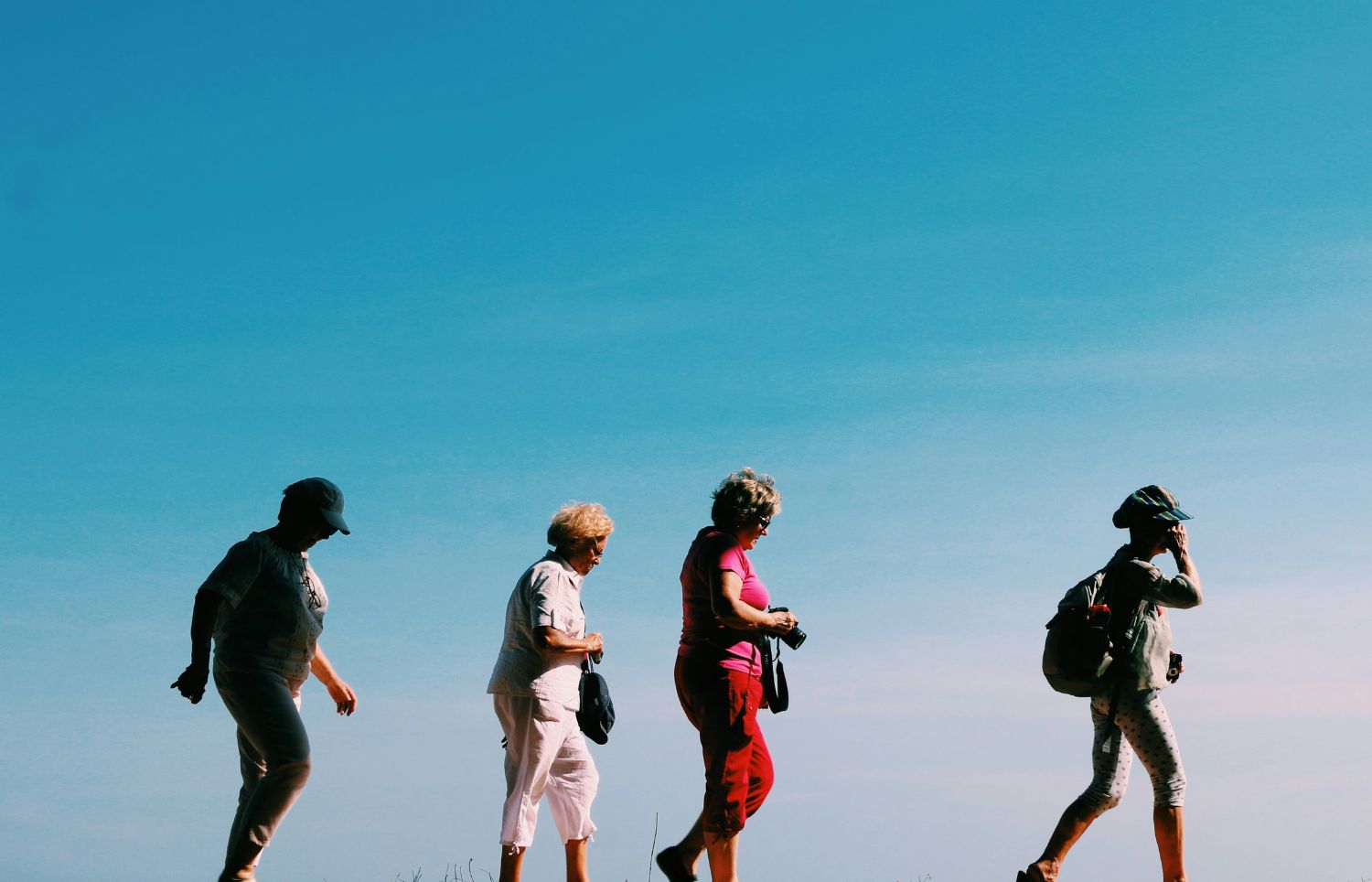When Sheree Hargreaves aged 15 realised that all her friends had started their periods, she felt left behind. She decided to visit her GP to see if there was anything wrong. Nothing could prepare her to be told that she had already gone through the menopause. Sheree was diagnosed with Primary Ovarian Insufficiency (POI).
Despite her own struggles with POI, Sheree has gone on to advocate for better understanding of premature menopause and is carving out a career in the hope to help others in a similar situation.
For our Women’s Health special issue we spoke to Sheree about the importance of knowing about the effects of premature menopause and a ‘hidden’ side effect called vaginal atrophy.

Sheree, thanks for talking to the Bladder and Bowel Community. Can you tell us a little about your background and being diagnosed with POI/ premature menopause?
I was 15 when I was diagnosed with POI. The motivation to go to the doctors was my missing periods; all of my friends and peers seemed to have already gone through puberty so I felt left behind.
My GP did many tests and found that I had very low oestrogen levels and very high FSH (follicle stimulating hormone) levels which indicated early menopause. However, although doctors tried to find a cause, specialists told me my diagnosis was idiopathic (without a cause). It was only with the privilege of hindsight that I recognised many of my symptoms or feelings were not normal and were in fact menopausal – e.g. vaginal atrophy, hot flashes and brain fog.
How has living with POI affected your health and your day-to-day living?
POI has impacted my mental and physical health. Mentally I struggle with depression, anxiety and low moods (has been helped by HRT and counselling). However, the aspect of POI that impacts me more day to day is the physical symptoms.
As a masters student, you are expected to sit in lecture halls, seminar rooms and offices for hours at a time (places that are usually hot, stuffy and with uncomfortable seating) whilst performing and producing high quality work. Sometimes this feels like an impossible task.
I have to put in extra work and time in order to succeed as one of my main symptoms is ‘brain fog’.
I have to wear layers, so if I get too hot I can effectively cool myself down without leaving the room and missing important information.
I have to sometimes sit in different positions or stand up and walk around as I cannot sit for too long without joint pain and vaginal ache.
These are the things that not many other people think about at my age whilst studying.
I would honestly say that it is not the symptoms that impact me most, it is the tools and techniques I have to employ to be comfortable and succeed to a higher standard that make my day to day life difficult.
Can you tell us about your studies into reproductive health and what your Masters degree involves?
I am a full time Gender, Society and Representation MA student. It is an interdisciplinary course that tackles many different aspects of gender and sexuality from LGBT rights and nationhood to post-feminist critique on the notion of empowerment. However, throughout my Masters, I have chosen to narrow down my research into gerontology (the study of ageing), with a particular focus on menopause and societal stigma. I have studied two modules in particular (cultural narratives of ageing and feminist gerontology) that have fuelled the fire in me to further my ‘grassrooted nature’ and inspire my future plans within my career and private life.
My studies do not start and finish at Masters level, I am constantly educating myself on the current and historical literature concerning reproductive health, menopause, women and madness, feminist theory and much more by reading peer reviewed articles, catching up with current news and listening to podcasts.
*gerontology is the study of ageing and older adults.
Why do you think it is that we know so little about menopause and its effects, in general?
Throughout history, women have typically been stigmatised into madness. The word hysterectomy comes from the notion of removing a woman’s hysteria (madness). The stigma of menopausal women as unattractive, infertile, crazy and rageful stem from the perpetuation of misogyny. Women, within our society, are constructed to be fertile, attractive and docile due to, mostly western, societal acceptance of laws and beliefs surrounding women. Menopausal women were and are seen to go against these notions so we are taught to be scared about it, instead of viewing the process as natural.
Further to this, the medicalisation of the ageing body has influenced the negative language we use when talking about menopausal women, for example; the failure of the ovaries, the decline of health, the loss of fertility. All of these words impact how women are seen. So people don’t talk about it because it is either a scary thing to start talking about or it is something that people don’t think is important to talk about.
The effects of not talking about menopause, particularly menopause in older women, has been a catalyst for job loss, divorce and decline in health because people and women are ashamed or embarrassed about reaching out and talking about it and others (educators) do not see value in the knowledge surrounding menopause because of the lack of care for women.
One of the ‘hidden’ side effects of POI/menopause is a condition called vaginal atrophy. Can you tell us about this condition?
A healthy vagina is self-cleaning, lubricating and usually has plump soft skin. Vaginal atrophy is the thinning and drying of the vulva and vagina which typically causes pain and discomfort for the host. This is usually described as a hidden side effect because there is a lot of shame and embarrassment surrounding talking about your ‘private’ parts (because it is not meant to concern others, as it is private). However, this leads to many unhappy women with untreated symptoms causing them pain during sex, wearing tight clothing or even urinating (in some cases).
Would you be willing to share your experiences with vaginal atrophy?
The first memorable time I experienced vaginal atrophy was in high school. I was about to sit my GCSEs and I remember that I was so nervous to sit in the exam hall for two to three hours at a time. I remember not wanting to tell anyone that it was because my vagina hurt.
I suffered with vaginal atrophy for 6 years before telling anyone because I was so scared that something was either seriously wrong with me or that I would be made to feel embarrassed that I was having pain ‘down there’.
I suffered badly, I couldn’t wear certain types of underwear and some types of jeans as the seams would rub and irritate my vagina. I struggled with sports as it hurt as I ran or was more active.
It was really difficult as a teenager too because everyone is talking about sex. I had absolutely no interest in sex as a teenager, not solely because of my low sex drive but because I was scared of the pain. It was not until university when I heard the term vaginal atrophy and I got some closure on the fact that I was not going mad.
Have you been able to receive any treatment to help with vaginal atrophy?
I use vaginal/ local oestrogen. It is called VagiFem 10mg. It is a tablet that I insert vaginally using a pessary and I do this weekly. At first I was taking it daily for two weeks, then once every two days and now once weekly. This has helped massively. I also use lube during sex which helps and I use vaginal moisturisers for external use to soften the outer vulva which helps with irritation with clothing.
Do you think that medical professionals need more extensive training on reproductive health?
Absolutely!
This is the main reason why I am behind the ‘Make Menopause Matter’ campaign as one of their targets is to get mandatory training for GP’s in place.
Reproductive health and women’s health more generally is arguably a human right and the restriction of knowledge/ ignorance surrounding it is a negligence of women’s rights.
Do you think that the use of HRT should be discussed in a more positive manner?
Yes! The way I describe HRT to women who do not take it or do not like the idea of taking it is this;
‘If you were anaemic, would you take iron supplements? If you were diabetic, would you take insulin? Yes? So why not HRT? It replaces what your body is not producing naturally’.
I do understand the scare/ stigma surrounding HRT especially for women struggling with other conditions, however, many of these women have taken the contraceptive pill their entire lives (massive amounts of hormones and side effects) but resist HRT. Education needs to change surrounding HRT as it is labelled as a villain – even though it has saved my life.
Why do you think that people are so reluctant to discuss menopausal symptoms?
I think it is the medicalisation of menopause that scares women into thinking that they are past their prime, that they are failures or that they cannot be mothers- all of which is completely false! There is a slo a lot of misunderstanding that women have to face when they go to the doctors so many women give up and stay silent as they think they won’t get anywhere anyway.
A lot of the time women are confused about their menopausal symptoms, many women discuss feeling puzzled about what is a symptom and what’s just them. With this, a good thing about hot flushes is that it is a pretty distinctive way of knowing if you have symptoms or not.
Do you think that it’s important in general, that people know more about the menopause?
I think it is massively important for all people, including men, boys and the trans community to know and understand menopause as it occurs in all people assigned female at birth at all ages. It has a detrimental impact on them and it can impact relationships with spouses, siblings and friends too.
Thank you Sheree, for sharing your story about premature menopause in such an honest and emotive way.
Further Information
You can follow Sheree on Instagram @lifeofpoi_
The views in this article are Sheree’s own and not to be taken as medical guidance . Please visit your GP in the first instance if you suffer from any of the issues raised.
You can find more articles on menopause, reproductive health and how it can affect the bladder and/or bowel on our website.









